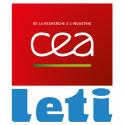7.5 System Reliability: from Runtime to Design Languages
Date: Wednesday 11 March 2015
Time: 14:30 - 16:00
Location / Room: Meije
Chair:
Dirk Stroobandt, Ghent University, BE
Co-Chair:
Diana Goehringer, University of Bochum, DE
Over the last few years, reliability has become an increasingly relevant consideration for electronic systems. This session will address system reliability from design flow to run-time in both digital as well as analog systems.
| Time | Label | Presentation Title Authors |
|---|---|---|
| 14:30 | 7.5.1 | AXILOG: LANGUAGE SUPPORT FOR APPROXIMATE HARDWARE DESIGN Speakers: Amir Yazdanbakhsh1, Divya Mahajan1, Bradley Thwaites1, Jongse Park1, Anandhavel Nagendrakumar1, Sindhuja Sethuraman1, Kartik Ramkrishnan2, Nishanthi Ravindran2, Rudra Jariwala2, Abbas Rahimi3, Hadi Esmailzadeh1 and Kia Bazargan2 1Georgia Institute of Technology, US; 2University of Minnesota, US; 3University of San Diego, US Abstract Relaxing the traditional abstraction of "near-perfect" accuracy in hardware design can lead to significant gains in energy efficiency, area, and performance. To exploit this opportunity, there is a need for design abstractions that can systematically incorporate approximation in hardware design. We introduce Axilog, a set of language annotations, that provides the necessary syntax and semantics for approximate hardware design and reuse in Verilog. Axilog enables the designer to relax the accuracy requirements in certain parts of the design, while keeping the critical parts strictly precise. Axilog is coupled with a Relaxability Inference Analysis that automatically infers the relaxable gates and connections from the designer's annotations. The analysis provides formal safety guarantees that approximation will only affect the parts that the designer intended to approximate. Finally, the paper describes a synthesis flow that approximates only the relaxable elements. Axilog enables applying approximation in the synthesis process while abstracting away the details of approximate synthesis from the designer. We evaluate Axilog, its analysis, and the synthesis flow using a diverse set of benchmark designs. The results show that the intuitive nature of the language extensions coupled with the automated analysis enables safe approximation of designs even with thousands of lines of code. Applying our approximate synthesis flow to these designs yields, on average, 54% energy savings and 1.9× area reduction with 10% output quality loss. Download Paper (PDF; Only available from the DATE venue WiFi) |
| 15:00 | 7.5.2 | IMPROVING MPSOC RELIABILITY THROUGH ADAPTING RUNTIME TASK SCHEDULE BASED ON TIME-CORRELATED FAULT BEHAVIOR Speakers: Laura A Rozo Duque1, Jose Monsalve2 and Chengmo Yang1 1University of Delaware, US; 2University of Delaware, CO Abstract The increasing susceptibility of multicore systems to temperature variations, environmental issues and different aging effects has made system reliability a crucial concern. Unpredictability of all these factors makes fault behavior to be diverse in nature, which should be considered by the runtime task scheduler to improve overall system reliability. To achieve this goal, this paper proposes a fault tolerant approach to model core reliability at runtime and tune resource allocation accordingly. Given the variation of fault duration, we propose a reliability model capable of tracking not only faults appeared in each core but also their correlation in time. Taking this model as an input, a scheduling algorithm that allocates critical and vulnerable tasks to reliable cores is also proposed. Experimental results show that the proposed adaptive technique delivers 56% improvement in application execution time compared to other existing techniques. Download Paper (PDF; Only available from the DATE venue WiFi) |
| 15:30 | 7.5.3 | ACSEM: ACCURACY-CONFIGURABLE FAST SOFT ERROR MASKING ANALYSIS IN COMBINATORIAL CIRCUITS Speakers: Florian Kriebel, Semeen Rehman, Duo Sun, Pau Vilimelis Aceituno, Muhammad Shafique and Joerg Henkel, Karlsruhe Institute of Technology (KIT), DE Abstract Technology scaling in the nano era allows smaller and faster transistors with improved performance and power efficiency. However, small feature sizes and associated low-operating voltages have led to radiation-induced soft errors as a major source of unreliability in modern circuits. As not all errors propagate to the final output of a combinatorial circuit (e.g., because of logical masking effects), an analysis of the error masking characteristics is required to evaluate and enhance the quality of a reliable processor design. State-of-the-art gate-level soft error masking techniques require a significant amount of analysis time due to their inherent nature of parsing and analyzing the complete processor's netlist, which may take up to several days. In this paper, we present a fast and Accuracy-Configurable Soft Error Masking analysis technique (ACSEM) that performs error probability analysis on parts of netlist within the user-provided masking accuracy range. To enable this, we theoretically derive the maximum number of steps in the netlist graph that has to be processed to reach the required masking accuracy level. This significantly reduces the analysis time by orders of magnitude compared to traditional state-of-the art approaches that process all logic gate paths in a given combinatorial circuit. Download Paper (PDF; Only available from the DATE venue WiFi) |
| 15:45 | 7.5.4 | ENERGY MINIMIZATION FOR FAULT TOLERANT SCHEDULING OF PERIODIC FIXED-PRIORITY APPLICATIONS ON MULTIPROCESSOR PLATFORMS Speakers: Qiushi Han1, Ming Fan1, Linwei Niu2 and Gang Quan1 1Florida International University, US; 2West Virginia State University, US Abstract While technology scaling enables the mass integration of transistors into a single chip for performance enhancement, it also makes processors less reliable with ever-increasing failure rates. In this paper, we study the problem of energy minimization for scheduling periodic fixed-priority applications on multiprocessor platforms with fault tolerance requirements. We first introduce an efficient method to determine the checkpointing scheme that guarantees the schedulability of an application under the worst-case scenario, i.e. up to K faults occur, on a single processor. Based on this method, we then present a task allocation scheme aiming at minimizing energy consumption while ensuring the fault tolerance requirement of the system. We evaluate the efficiency and effectiveness of our approaches using extensive simulation studies. Download Paper (PDF; Only available from the DATE venue WiFi) |
| 16:00 | IP3-11, 674 | SEMIAUTOMATIC IMPLEMENTATION OF A BIOINSPIRED RELIABLE ANALOG TASK DISTRIBUTION ARCHITECTURE FOR MULTIPLE ANALOG CORES Speakers: Julius von Rosen1, Markus Meissner1 and Lars Hedrich2 1Goethe Universität Frankfurt, DE; 2Goethe-Universitat Frankfurt a. M., DE Abstract In this paper we present a silicon implementation of a bioinspired analog task distribution system for enabling reliable analog multi-core systems. The increase in reliability is achieved by a dependable task distribution architecture using a hormone based mechanism. The specifications are generated by a feasibility analysis of the algebraic description of the architecture. Starting from the specifications, an automated analog synthesis framework is used to fasten the time-consuming design of the needed analog amplifiers. The complete system with the designed amplifiers has been layouted and fabricated. We present measurements of two different architectures of task distribution system on silicon showing the full functionality of the system and the design methodology. Download Paper (PDF; Only available from the DATE venue WiFi) |
| 16:01 | IP3-12, 925 | POWER-EFFICIENT ACCELERATOR ALLOCATION IN ADAPTIVE DARK SILICON MANY-CORE SYSTEMS Speakers: Muhammad Usman Karim Khan, Muhammad Shafique and Joerg Henkel, Karlsruhe Institute of Technology (KIT), DE Abstract Modern many-core systems in the dark silicon era face the predicament of underutilized resources of the chip due to power constraints. Therefore, hardware accelerators are becoming popular as they can overcome this problem by exercising a part of the program on dedicated custom logic in an energy efficient way. However, efficient accelerator usage poses numerous challenges, like adaptations for accelerator's sharing schedule on the many-core systems under run-time varying scenarios. In this work, we propose a power-efficient accelerator allocation scheme for adaptive many-core systems that maximally utilizes and dynamically allocates a shared accelerator to competing cores, such that deadlines of the executing applications are met and the total power consumption of the overall system is minimized. The experimental results demonstrate power minimization and high accelerator utilization for a many-core system. Download Paper (PDF; Only available from the DATE venue WiFi) |
| 16:02 | IP3-13, 806 | THERMAL-AWARE FLOORPLANNING FOR PARTIALLY-RECONFIGURABLE FPGA-BASED SYSTEMS Speakers: Davide Pagano, Mikel Vuka, Marco Rabozzi, Riccardo Cattaneo, Donatella Sciuto and Marco D. Santambrogio, Politecnico di Milano, IT Abstract Field Programmable Gate Arrays (FPGAs) systems are being more and more frequent in high performance applications. Temperature affects both reliability and performance, therefore its optimization has become challenging for system designers. In this work we present a novel thermal aware floorplanner based on both Simulated Annealing (SA) and Mixed- Integer Linear Programming (MILP). The proposed method takes into account an accurate description of heterogeneous resources and partially reconfigurable constraints of recent FPGAs. Our major contribution is to provide a high level formulation for the problem, without resorting to low level consideration about FPGAs resources. Within our approach we combine the benefits of SA and MILP to handle both linear and non-linear optimization metrics while providing an effective exploration of the solution space. Experimental results show that, for several designs, it is possible to reduce the peak temperature by taking into account power consumption during the floorplanning stage. Download Paper (PDF; Only available from the DATE venue WiFi) |
| 16:00 | End of session Coffee Break in Exhibition Area Coffee Break in Exhibition AreaOn all conference days (Tuesday to Thursday), coffee and tea will be served during the coffee breaks at the below-mentioned times in the exhibition area. Lunch BreakOn Tuesday and Wednesday, lunch boxes will be served in front of the session room Salle Oisans and in the exhibition area for fully registered delegates (a voucher will be given upon registration on-site). On Thursday, lunch will be served in Room Les Ecrins (for fully registered conference delegates only). Tuesday, March 10, 2015Coffee Break 10:30 - 11:30 Lunch Break 13:00 - 14:30; Keynote session from 13:20 - 14:20 (Room Oisans) sponsored by Mentor Graphics Coffee Break 16:00 - 17:00 Wednesday, March 11, 2015Coffee Break 10:00 - 11:00 Lunch Break 12:30 - 14:30, Keynote lectures from 12:50 - 14:20 (Room Oisans) Coffee Break 16:00 - 17:00 Thursday, March 12, 2015Coffee Break 10:00 - 11:00 Lunch Break 12:30 - 14:00, Keynote lecture from 13:20 - 13:50 Coffee Break 15:30 - 16:00 |









